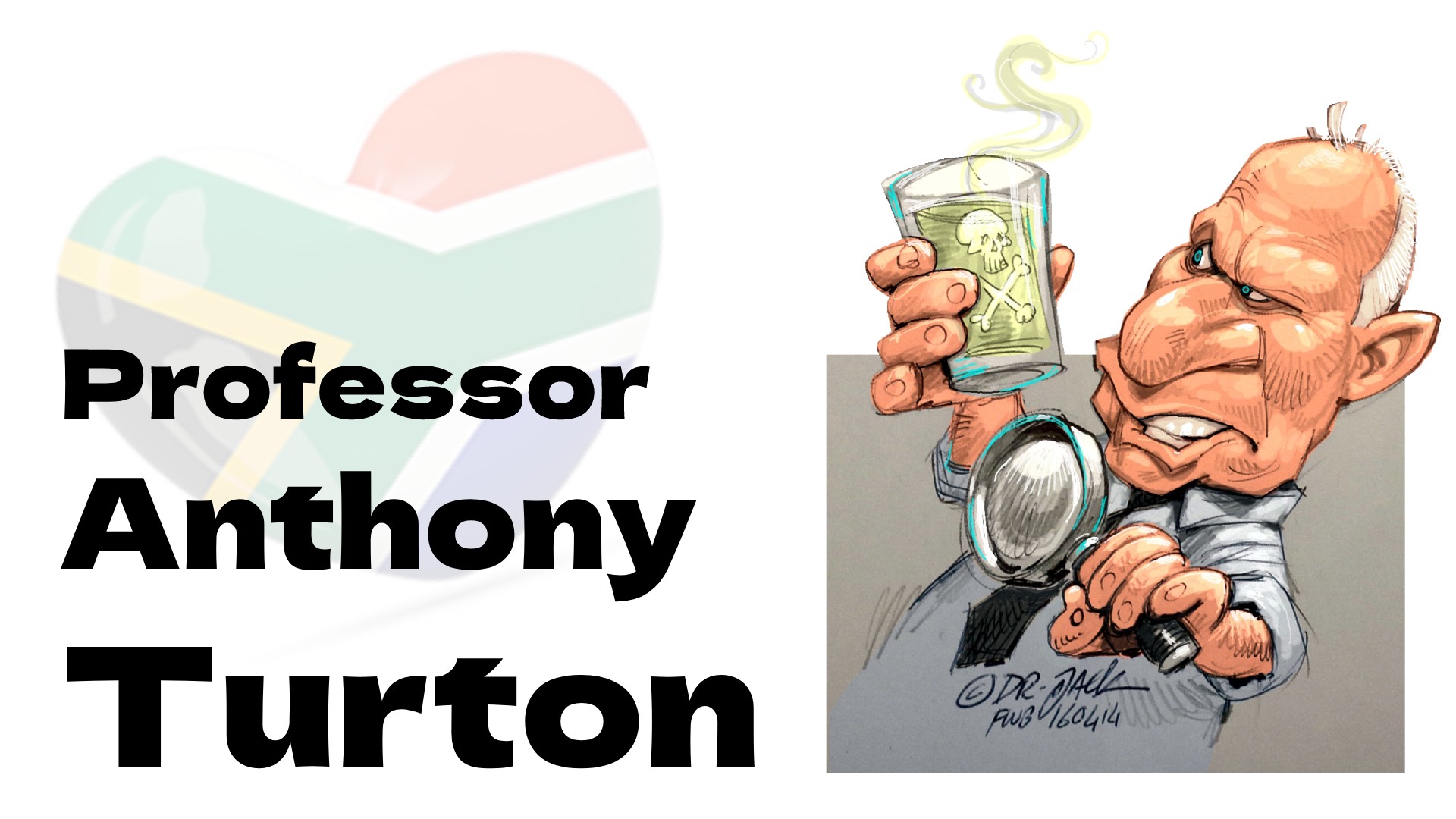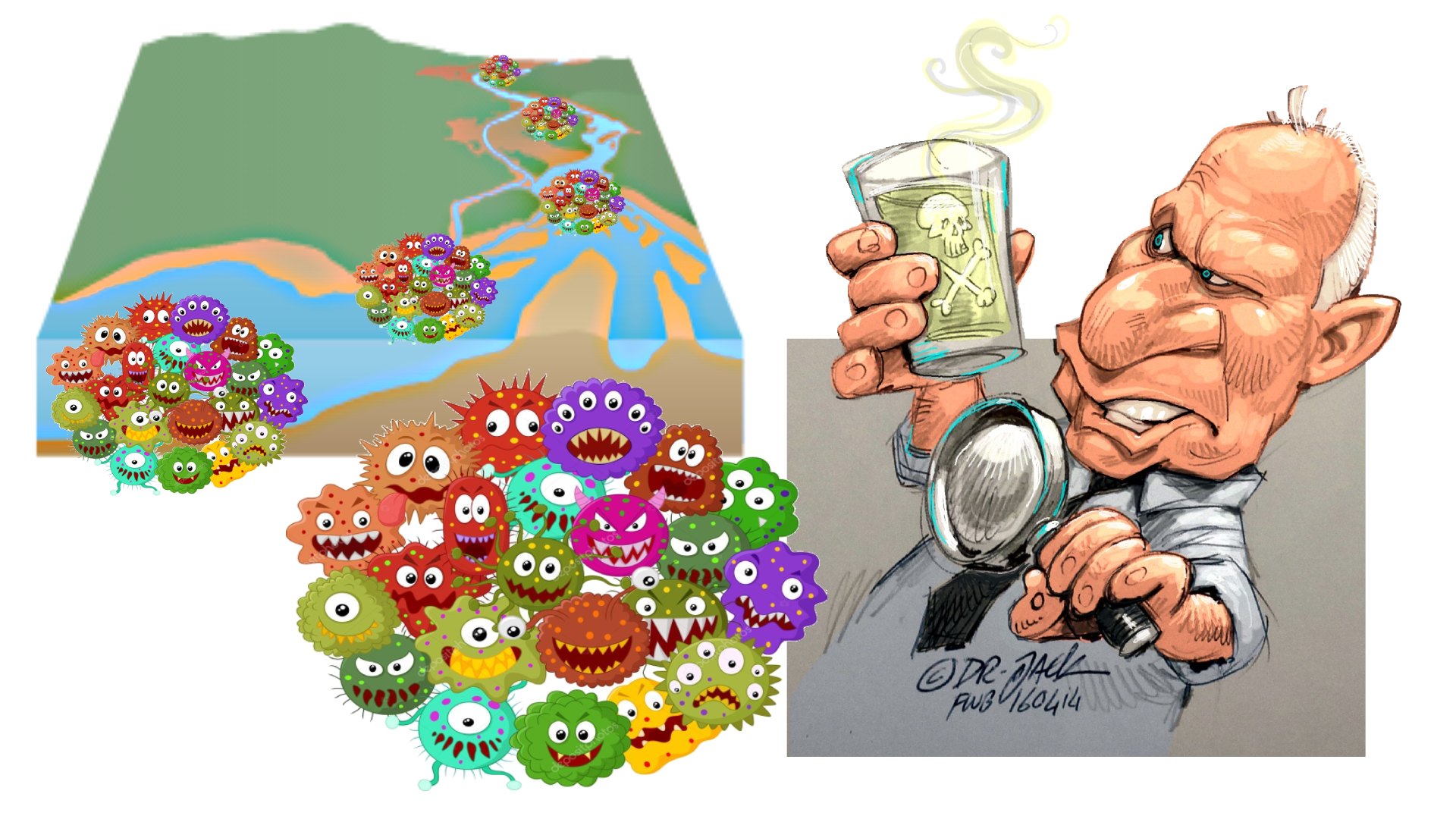
Professor Tony Turton Weighs In About Water Quality in SA
Professor Tony Turton Weighs In About Water Quality in SA: I have been writing to educate the general public to the point where they can make an informed decision when confronted by a municipal statement that the beaches are safe from sewage contamination. In one recent statement, a municipality claimed that 30 of it’s beaches are safe, citing 300 samples on which this conclusion is based.
From a forensic perspective, we have two variables that need verification. Variables 1 is the claim that 30 beaches are safe. Variables 2 is that this conclusion is derived from 300 samples.
The numbers 30 and 300 are relevant to this assessment, and nothing else. So the question is whether the conclusion that 30 beaches are safe is valid, when the answer has been extrapolated from 300 samples? Stated differently, can 300 samples reliably tell us that 30 beaches are safe?
To answer this question we have to get technical, so please bear with me as I explain.
For argument sake, let us assume that we are sampling one site only. Let’s assume this site is in the middle of the deepest channel of an estuary. Then let’s assume that this single sampling point as shown on a map is two metres deep. Let us assume that most sewage contamination comes from rivers.
Now it gets interesting, because an estuary is the place where freshwater and salt-water meet. Freshwater comes from the run-off over the land, and salt-water comes from the ocean. To better understand this interaction between freshwater and salt-water, we need to grasp some basic physics and chemistry.
Here goes. Please bear with me.
Freshwater is less dense than salt-water so it will always result in stratification in an estuary. Freshwater will flow on top of the salt-water, so to take a representative sample we must capture data from BOTH the freshwater and the salt-water at that one single point in the deepest part of the two metre channel.
The freshwater sample will tell us if the sewage is coming down rivers, and the seawater sample will tell us if it’s coming from offshore pipelines.
But we don’t know how deep the freshwater lens is as it floats over the top of the seawater. We know that freshwater floats so a surface sample will capture data only from the river fraction. We can also assume that the very bottom of the channel is most likely to be just salt-water. Note that we can’t say for sure that it will be salt-water, because if the river is in flood, it’s possible that the entire flow at that single point will be fresh. But we also know that most of our rivers in South Africa have been dammed, so flooding is attenuated to the point where its safe to assume that the sample taken at two metres below surface, in a channel two metres deep, is likely to be saline.
So we can easily conclude that two samples, one at the surface, and another at the bottom of the two metre deep channel will probably capture both the freshwater and salt-water fractions of the total water column.
This means that at a minimum we need 2 samples from that one point if we are to draw valid conclusions. But, we also know that different laboratories give different readings for various valid reasons, so at a minimum we need four samples from that single point of measurement in the deepest channel of the estuary.
So we now have 4 samples from one place. Two go to Labarotary A and two go to Labarotary B. They don’t know about each other, so they can’t collude to manipulate the results. Can we draw conclusions from four samples taken at one point to safely determine that 30 beaches are safe?
Let’s dig deeper.
Estuaries are dynamic environments because seawater meets freshwater. But the ocean has a tidal pulse. Therefore to fully understand our estuary, we have to sample everyday for a lunar cycle, if we are to understand how the tidal pulse distributes the flow between freshwater and salt-water fractions. Lets call this a calendar month, so 4 samples daily multiplied by 30 equals 120 samples that will be required to understand that single estuary.
But what about seasonal changes? What about spring tides versus neap tides? What about rainy seasons versus dry seasons. What about summer and winter? To understand these complex issues in the most primitive way, we need to capture at a minimum three months worth of data. This will at least tell us what the spring tide impact is, and it might start to suggest seasonal variations. Suddenly our 120 samples now become 360.
Now the next question is whether the samples taken in the deepest portion of the estuary accurately capture data from offshore pipelines discharging untreated sewage into the ocean a kilometer away? To understand this we need at a minimum to capture data at the surface and at the point of discharge at depth. Let’s say we have only one sewage discharge pipeline. This doubles the number of samples needed, so we now face the need for 720 samples.
In our theoretical model we now have 720 samples, taken from just two sampling points, so we can now ask if we can safely extrapolate the results from 720 samples, taken from just two points a kilometre apart, to conclude that 30 beaches are safe?
The logical answer is no.
It’s not possible to reliably conclude that 30 beaches are safe, after analysing 720 samples. Therefore such claims cannot be substantiated by the data captured from the two sites. In reality, it would require thousands of samples, captured over time scales measured in months, or even years, to reliably make such claims.
I am not saying that these officials are deliberately misleading the public. What I am saying is that the claims being made citing the precise number of samples used, cannot be statistically relevant. Therefore the legal term Caveat Emptor applies. Buyer beware.
Take appropriate precautions. Have a lovely holiday. But never be afraid of applying logic to sweeping statements made by municipal officials. The beaches are probably safe, but not because of voodoo science being cited by municipal officials who assume that the public is gullible enough believe their slick spin.
To vaguely conclude that 30 beaches are safe would require at least 3 000 samples. But to reliably conclude that 30 beaches are safe would require closer to 30 000 samples.
Caveat Emptor.
Be savvy. Stay safe.
THANK YOU TONY!
Sardines and Sighting Maps
It has been a fantastic sardine run this memorable 2024. And all the action has been logged right here on The Sardine News. This year’s map has been viewed 200 000 times and just keeps growing.
Which led us to decide to keep the map live. And keep adding unique marine animal sightings and events. That occurs non-stop all year round. This year we started to log more whale and dolphin sightings. And we even had a shipwreck! And a freaking tornado! And recently a capsized KZNSB boat! We have been updating the map with recent catches too…
These events will from now on be included in the Sardine News Sightings Map for 2024. And on the 1 January 2025, we shall start all over again.
Here are the links to existing and past Sardine Sighting Maps. Great for a windy day like today to research. With instructions to install The Sardine News right on your phone or desktop.
2024 Sardine Map
2023 Sardine Map
2021 Sardine Map
Channels
Brucifire Surf Retorts – highly entertaining surf reporting
Master Watermen – news from way down deep
The Sardine News – neva miss a single sardine
FishBazaruto – 1000 pounds plus
MYDO Tackle Talk – highly technical sport fishing
Surf Launching Southern Africa – getting out there safely
Water Woes – complain about your municipality here
Websites
umzimkulu.co.za – self-catering right on the Umzimkulu River
umzimkuluadrenalin.co.za – will get you right out and onto the edge
thesardine.co.za – never miss a single sardine
masterwatermen.co.za – news from under water
fishbazaruto.com – dreams
brucifire.co.za – surf retorts


